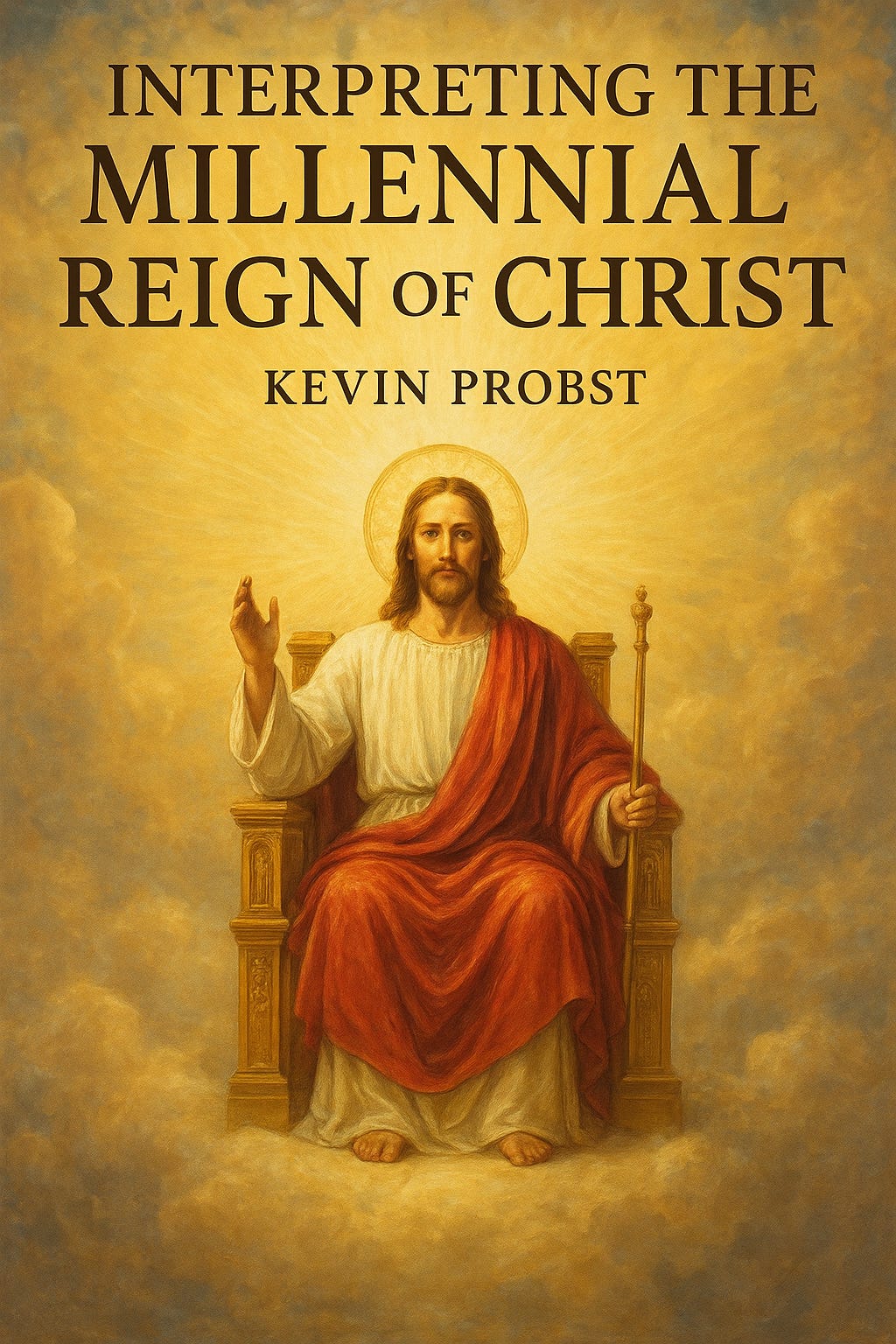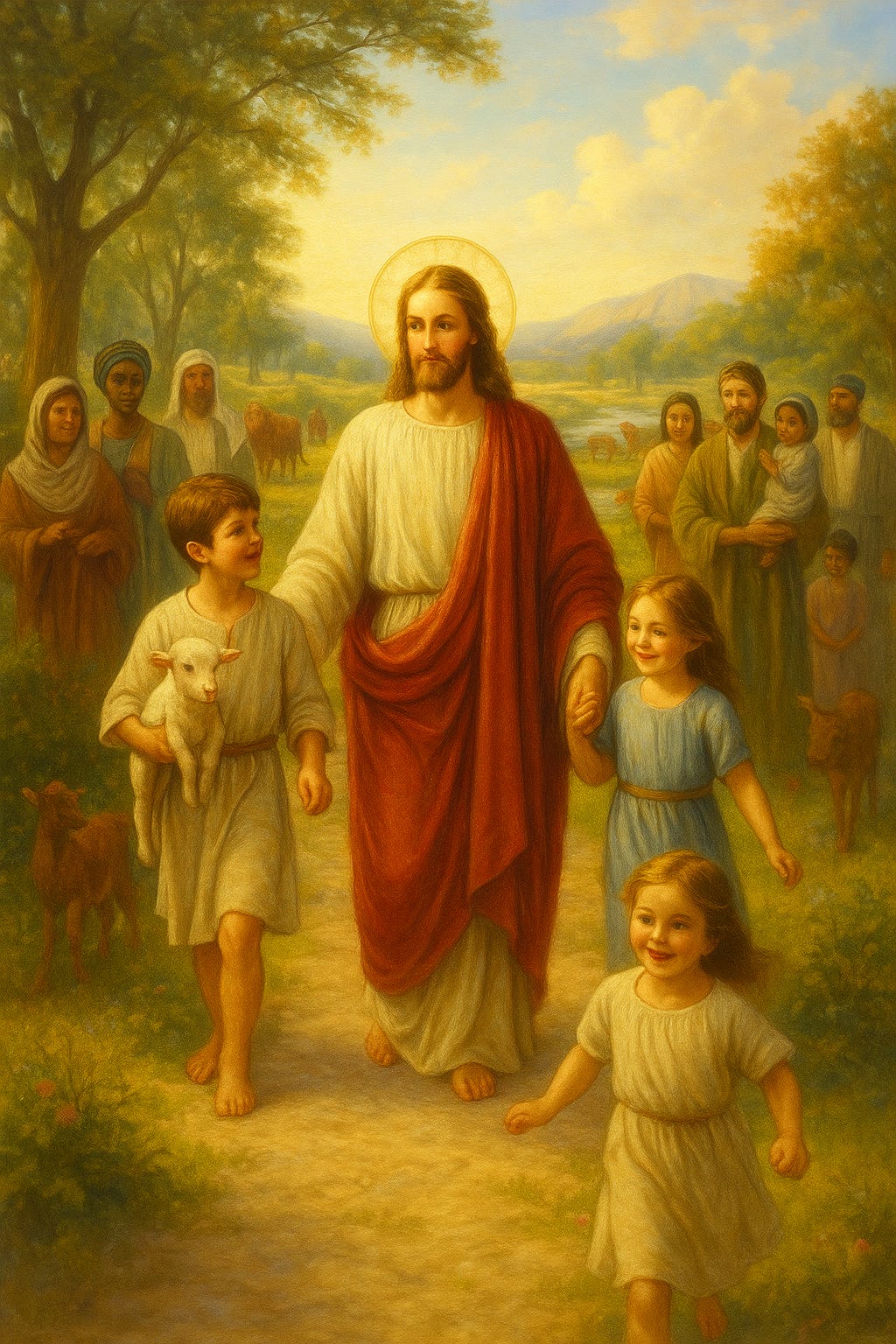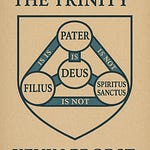Interpreting the Millennial Reign of Christ
Kevin Probst
8/31/2025
The 20th chapter of Revelation references the 1,000-year millennial period six separate times. If we allegorize the thousand years, why would we not allegorize the remaining parts of this chapter? The lake of fire, the book of life, death, and hell. How dangerous to allegorize chosen parts and factualize others. Should we believe the millennial reign should be spiritualized while the rest of the chapter is literal?
The three common ways of interpreting the biblical teaching of the millennium are as follows:
The Amillennialists
The early church fathers taught a literal millennial reign, but their teachings were diluted by the 4th-century teachings of Tyconius and Augustine. Many reformed followers of Augustine, John Calvin, and Roman Catholics believe in a spiritualized millennium happening now. Calvin referred to the idea of a literal millennium as “childish fiction.” The danger seems to be trusting in the judgment of men to determine which scriptures should be taken literally or spiritualized. There is certainly much allegory in scripture, but the safest course must be to adopt a literal translation when possible lest we begin to allegorize the creation, the virgin birth, the resurrection, heaven, hell, and other crucial doctrines of the gospel.
The Postmillennialists
Postmillennialists believe the millennium will happen before Christ returns, and the church will be instrumental in bringing it to pass. The faithful preaching of the gospel will lead to the successful conversion of more and more people to Christ. The sinful and secular world will be gradually Christianized in preparation for the return of Christ. This interpretation is strongly questioned when faced with the reality that the condition of humanity on earth certainly does not seem to be gradually improving. Postmillennialists have been losing popularity since World War I. The war that was supposed to end all wars didn’t.
The Premillennialists
The premillennialist embraces a more literal translation of scripture. Premillennialists believe scripture clearly teaches that Christ will return to earth before the thousand years and He will set up an earthly kingdom and reign with his saints from the holy city of Jerusalem. Satan will be bound during this period of time, unable to influence the inhabitants of Christ’s kingdom. The dead in Christ will be resurrected and given glorified bodies and will live among those who are unglorified who yet procreate and also experience death. At the end of this millennial period, Satan will be released to organize a final rebellion among those born during this time period. His rebellion will be quickly and thoroughly crushed, and the Great White Throne judgment will follow. Those who have rejected Christ will enter eternal punishment, and those who have accepted Christ will enter into a New Heaven and a New Earth prepared for them by One who promised: “I go and prepare a place for you, I will come back and take you to be with me that you also may be where I am.” (John 14:3)
Multiple Old Testament verses teach details about the premillennial period:
Ezekiel tells us that King David will have a prominent role in the premillennial kingdom, and the nation of Israel will have a place of dominance.
Amos teaches that a blessing and security will be provided for the nation of Israel, and the temple shall be restored.
Zechariah teaches that it will be a time of purity and devotion. Satan will be subdued, and true justice will reign upon the earth.
Luke 1:32-33 points to a literal reign of Christ upon the earth. "The Lord God will give him the throne of David."
Revelation teaches that the saints will be rewarded for their faithfulness with important responsibilities during the millennial period.
The interpretation of the millennium remains very controversial, along with the timing of the rapture and the appearance and nature of the anti-Christ.
A 2026 Lifeway Research Study polling Protestant pastors discovered that 48 % believe in premillennialism, while 31% were amillennial, and 11% embraced postmillennialism.
God allows a fog of mystery to obscure future events as He did preceding the first coming of Christ. We certainly see through a glass darkly. What is made very clear to all is that we are to be prepared, we are to keep our lamps trimmed. Just as the prophecies of his first coming were fulfilled, so shall the prophecies of his second coming be fulfilled. Until then, we are instructed to “Occupy until I come.” (Luke 19:13)











